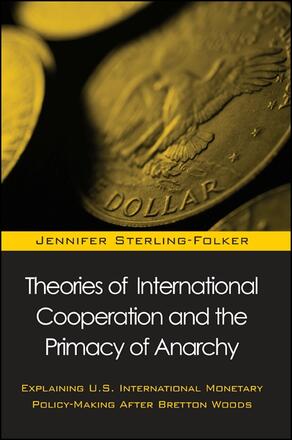
Theories of International Cooperation and the Primacy of Anarchy
Explaining U.S. International Monetary Policy-Making After Bretton Woods
Alternative formats available from:
Argues the state and not markets should be the center of analysis when attempting to explain international cooperation.
Description
Challenging the standard liberal explanations for international cooperation in the field of international relations, this book contends that despite numerous efforts and the passage of time, our understanding of the cooperative phenomenon remains woefully inadequate. Sterling-Folker argues that widespread explanatory reliance on what constitutes functionally efficient choices in global interdependence is deductively illogical and empirically unsound. The author's approach for explaining international cooperation is comprised of realist and constructivist insights and places the state, rather than the market, at the center of analysis. A thorough examination of Post-Bretton Woods American monetary policy-making reveals the fundamental flaws of traditional explanations and the superiority of a realist-constructivist alternative to the cooperative phenomenon.
Jennifer Sterling-Folker is Associate Professor of Political Science at the University of Connecticut.
Reviews
"We can no longer look upon either liberal cooperation or realism in quite the same way after this book. The exegesis on both of these theories is penetrating, insightful, and imaginative, while the empirical testing is appropriate and quite conclusive. Anyone who wishes to enter into the theoretical conversation in contemporary international relations must read this book. " — Donald J. Puchala, University of South Carolina
"Sterling-Folker offers a simply breathtaking account of the flaws inherent in liberal international theory, and how realism is superior as a theory of cooperation. This book will become a major focal point in contemporary scholarly debate about the political consequences of international economic interdependence, and it may play a role in United States policy debate concerning countries such as China as well. " — Joseph M. Grieco, Duke University